Note to my subscribers: This article is too long to show in an email. Please click over to Substack or my website for the full article and the audio. Also, the format for audio files on Substack has changed, so if you cannot see the links and images here, head over to my site, where everything, including the audio, was originally published.
This took three weeks to research and write. I actually finished last week but couldn’t get the audio edited in time, so I postponed it until this weekend.
Emergency Preparedness For Seniors is a guide with tips and considerations for preparing for emergencies while dealing with the challenges of aging. This guide is intended to isolate and identify potentially unique differences the elderly may need to address when prepping, bugging out, or seeking better preparedness for emergencies and disasters.
In this article, I cover Emergency Preparedness For Seniors and their Caretakers. Whether you are a senior, have family members who are older, or are the caretaker of an elderly person, this article was written for you.
Table Of Contents
Protection And Situational Awareness – Preparedness For Seniors
Reliance On A Nursing Home, Assisted Living, Or In-Home Care
While this guide is written as an Emergency Preparedness for Seniors, many of the things I cover in this article MAY translate to preparedness for those with special needs or the physically challenged, not just preparedness for seniors.
Disclaimer: As always, I am an expert at only being myself and nothing more. This article is not meant to be professional or medical advice, as I am not a medical professional of any kind. Consider this an opinion piece, and seek the help or advice of a professional before acting on anything you see on this website.
Much of it is common sense, but I hope that seeing it on a page like this might help a few seniors or their caretakers. Let me know if I missed anything or if this helped in any way.
Introduction To Emergency Preparedness For Seniors
As I get older, my prepping mindset has changed a bit. The same basic principles of prepping apply, but a little more reality falls into place.
Oh no, a story already?
Just last night, I was watching a get-home pack video, and what looked reasonable just a few years ago has me shaking my head now. That older (Experienced) prepping mindset, with a little reality injected into it, makes many of these serious videos appear as fun comedies.
They have night vision, a ghillie suit, a tactical rifle, a chest rig with a plate carrier, half a dozen loaded mags for their handgun and rifle, and a big ol’ fighting knife (Or three). They have no combat or tactical experience whatsoever, but they’re ready to fight through whatever their mind has conjured up. Pure Comedy.
Senior Doesn’t Mean Feeble, Weak, or Unable To Contribute
Getting older sucks. . . but it beats the alternative. Every one of us who lives long enough will be faced with the reality that our strengths and status have transformed from a physical role to that more akin to an advisor or leader passing on experience and wisdom. Man or woman matters not.
That crazy delusion of runnin’ & gunnin’ has been replaced with understanding the consequences of falling or forgetting your meds. Wisdom.
You have knowledge to share that took a lifetime to acquire. Don’t allow the fact that you can’t leap over tall buildings to diminish that achievement.
Make A Plan: An Emergency Preparedness Plan For Seniors

Every individual needs a plan for preparedness, and seniors are no different. We make our plans based on location, situation, and likely SHTF scenarios.
Here are a few things to consider while building your preparedness plan:
Plan evacuation routes and a safe place to go.
Consider any mobility issues, medical equipment, supplies, and medication.
Build a go-bag with the things you need. Consider food, water, a flashlight, medications, and things you use daily. Use a pack or bag light enough to carry.
Have a list of emergency numbers and services handy. Don’t rely on memory or your phone/computer contact list; write them down. (Printable Cards Here)
Have a plan to lock up if you need to leave and someone to watch over things while you’re away.
Pets are people, too. Don’t leave them out of your plan. Watch Pet Preparedness.
Related: Building YOUR Realistic Preparedness Action Plan
Make Your Emergency Preparedness Plan Fit Your Abilities & Resources
Don’t panic; take your time and make a plan. Do what you can, and understand that anything you do today may make you that much better off than you were if you think things through. Don’t let the ‘possible someday‘ ruin the reality of today.
Prepping Tips For Seniors: Basic Supplies
Preppers prepare for emergencies based on the preparedness plan we just discussed. The other reason we prep is that preppers are smarter than other humans.
When we consider preparedness for seniors, that doesn’t change. What goes inside your pantry or that pack and how to carry it might, however.
I have a lot on prepping here on Next Step Survival, and there are tons elsewhere. Since ninety-nine percent of prepping and preparedness for seniors is the same as for anyone else, I will try to cover some of the potential differences.
Related: How To Start A Prepper Pantry – Updated w/ Video
and
Expanding Our Prepper Pantry Beyond Two Weeks
Special diet. Your diet isn’t necessarily different from anyone else’s, but it’s worth mentioning here. Just as the gluten-intolerant 25-year-old, take any special diet into consideration.
Incontinence supplies.
Special/unique clothing – Anything from diabetic socks to a throw blanket.
Denture care – Cleaning, storing, and adhesive.
Spare eyeglasses – Spare glasses and/or prescription sunglasses.
Hearing aid batteries.
Extra medications (See below).
Jar/bottle opening tool.
Jar and container size. We home-can most things using quart-sized jars. There are two of us, but pint jars might make more sense if there was just one of us.
Storage location. I store many preps high on shelving racks. I have small step stools for my 5’2″ wife, but I don’t want her climbing up on those stools as she gets older.
Cash/Financial Resources
Depending on your situation and circumstances, having a method on hand to make purchases or pay for services may be a good idea. Depending on the emergency scenarios we’re preparing for, a little cash may be needed if checks, bank cards, or ATMs are no longer an option.
Medications And Medical Equipment
Medications aren’t only for the elderly, but the older we get, the more likely meds are crucial.
IMPORTANT
If you must leave your city or town and your local pharmacy has the only copy of your prescriptions (Sent directly to the pharmacy electronically), you may have difficulty filling those prescriptions elsewhere. Try to have physical copies of prescriptions if possible. The same holds true if the pharmacy you use doesn’t open for some reason, such as a power outage or evacuation order.
Building A Backup Supply Of Prescription Medications
Building a backup supply of prescription medications can be difficult and/or expensive.
Some will be almost impossible, for example, medications like insulin that require refrigeration and have a limited shelf life. If that’s the case, it may be prudent to have a portable cooler handy in case you need to evacuate or the power goes out.
It may be possible to talk with your doctor and get another prescription for backup. Insurance may not cover the extra meds. It’s a little out of my wheelhouse.
IMPORTANT
Request your prescription refills as soon as possible, even if you still have some in your current prescription. In some cases, that can be as early as five (Or more) days early for thirty-day supplies (Check with your doctor and pharmacist). If that’s the case, you’ll gain five+ additional daily doses for months with thirty days (4 of them), five additional daily doses for February, and four additional daily doses for months with thirty-one days (7 of them). If you did that consistently for a year, you should have fifty-two daily doses of backup medication. If my math is correct. Double check – February’s hurting my brain. But you get the idea.
Several companies have popped up recently that may be able to offer backup supplies if the cost is within your budget. Do your due diligence – I haven’t used or researched any of these companies, so I cannot recommend them. It seems like some are geared more toward antibiotics.
You may need to look for alternatives to medication or have a medication-weaning (medication tapering) plan ready, both of which may come with risks. Talk to your doctor or medical professional before the need arises.
Related: Inpatient Medication Tapering by Alternative to Meds Center
Medical Equipment Backups
If we rely on medical and testing equipment, the prepper in me wants a backup—not just for the house but also if we need to bug out for an emergency.
My wife has to check her blood sugar, so I have several blood glucose monitor kit backups stocked and ready to use. That’s an easy one, however, as they’re not that expensive. We have a spare for both her bugout bag and get-home pack. I also keep an additional kit inside my medical pack.
TIP: If you purchase a backup Blood Glucose Monitor Kit, use the same brand and model as the one you already use, so the test strips and lancets are interchangeable. Also, don’t forget to keep a spare set of batteries for them as well.
Covid made me acquire a couple of blood pressure cuffs, several thermometers, and a couple of extra pulse oximeters.
I highly recommend accumulating these devices now. They were very difficult to purchase during COVID-19, along with many other things. Again — Spare batteries.
You know what medical equipment you use, if any. This may include things like a CPAP machine, oxygen tank, eyeglasses, or hearing aids, as well as mobility aids such as a cane, walker, wheelchair, or scooter. You may need to stock up on things like feeding tube supplies and tube feeding formula. You may also use syringes, needles, or catheters.
Acquiring extras of all your required equipment may be unnecessary, especially if you have relatively quick access to them in the unlikely event you need to bug out. Notice I said ‘unlikely event.’ I honestly believe that, depending on where we live, most of us run a relatively low risk of becoming refugees. Even though the world seems to be falling apart around us, much of that feeling of doom comes from the clickbait sensationalized headlines of the alternative media we gravitate toward. We’re not doomed quite yet.
Related:
How To Stop Falling For Agenda-Driven News Reporting – Finding Reliable News Sources
And
Email News Options: The News I Follow VIA Email
Emergency Documents / Information
I have a pretty detailed article on emergency documents coming, so I won’t get into this too deeply here. I do want to remind you of the importance of keeping something on your person that identifies you and any meds or conditions that might be helpful to first responders.
Name, address, home phone number
Age
Emergency contacts
Allergies
Blood type
List of medications and doses
Medical conditions
Insurance information
Do-not-resuscitate order (DNR)
Power of attorney
Accounts and policy details (Passwords IF you can do so safely, such as an encrypted and protected file)
Etc.
Dealing With Memory Issues
As we age, we often experience memory issues. Not everyone will suffer memory loss. If you do, the National Institutes of Health has a few tips for dealing with it. You can check those out, but the tip I want to bring up is, “Plan tasks, make to-do lists, and use memory tools such as calendars and notes.”
Planning (You’re well on your way if you are reading this) and writing down details may be very helpful. Personally, I think this is good advice for those of any age, good or bad memory.
Have you ever been approached by a stranger who asked for directions to a place you know exactly how to get there but had to struggle to give directions? I have, and that’s because we are caught off guard in that type of situation. Now imagine how off guard we’d be if a major emergency or disaster hit us without notice.
Writing down details can help. It’s part of emergency preparedness, in my opinion. I wouldn’t get so detailed that it takes a bunch of time to go over, but a few details and a quick checklist, if needed, can go a long way.
Just as the emergency information, medications, and contact list mentioned above, having a checklist of a few quick notes can help us move and think quickly without forgetting something important.
Related: The Complete Guide To Building An End-of-Life Binder
Mutual Assistance Group (MAG): Your Mutual Support Network
This doesn’t mean you have to gather a group of like-minded people in your neighborhood willing to help and protect one another, although that would be ideal for anyone.
Related: MAG Leadership – Managing Your MAG (Mutual Assistance Group)
Building a list of people that can help you in the case of an emergency. Discussed with them in advance.
Family members
Church members
Caring neighbors
If they’re available, willing, able, and have your trust, they may belong in your mutual support network, along with first responders. This network could be for anything from helping you get across town to helping you load the car. From stopping the water of a busted pipe to watching your pet for a few days. Many people are willing to help if they know the need is there.
Be sure to notify your group/network/community if you leave town or your home.
It may be a good idea for someone you trust to have a key to your home in the event you need help behind a locked door.
You should have direct contact with the people within your support network, and it would also be a good idea to have an alternate communication method.
Be part of the network by helping where you can.
Bugging In Or Bugging Out: Stay or Go?
Depending on where we live and the circumstances, most would agree that bugging in is usually best if we don’t already have an established, stocked, and secure bugout location.
Plan to stay, prepare to go.
I’ve been guilty myself of saying, “I plan on bugging in,” as a broad statement, yet my wife and I keep bugout bags ready. Bugging in is likely a bad idea if the house is on fire.
What Goes Inside Your Bugout Bag
I hate to give a typical “It depends” answer on what seniors should decide to pack inside a bugout bag, but it’s impossible to offer a list that even fits most people, much less everyone.
I will mention that being a little older, having physical or mental challenges, and having limited mobility, are all just factors we have to add to the total equation when determining anything in life. It’s no different for those with limited cash resources, those living in a high-risk area, or those of any age who have young children; we customize our preps accordingly.
Most of the items we might consider adding to our bugout bags are no different from those of our grown children, for example.
We want to cover the main concerns such as:
Food & Water
Medical & First Aid
Clothing & Shelter (Including backup heat and/or cooling)
Health, Sanitation, & Hygiene
Personal Protection
Power & Energy
Communication & Information
Transportation & Navigation
We want to keep things as simple and lightweight as possible. One challenge we preppers have, myself included, is that we tend to overthink everything. And everything we can think of tends to go into the ‘critical‘ category. That’s when a pack, such as a bugout bag, gets too complicated, difficult to maintain, and impossible to carry.
Also, with any age, we need to look at the most likely event that would send us away from the security and resources we currently enjoy.
Why are we leaving?
Where are we located?
Where will we go?
How long will it take to get there?
What resources will be available when we arrive?
A senior’s bugout bag or plan may need to include medications, special equipment, and outside help.
If you drive and have a car and an evacuation seems possible, fill your gas tank. We should never allow our gas tanks to get below half a tank in case an SHTF (Stuff Hits The Fan) sneaks up on us. Gas stations may be closed during emergencies or outages. Keep a Car Emergency Kit inside your vehicle whenever you leave home.
Remember to take water if you leave home. If you stay, have plenty of emergency water on hand. Depending on the situation, filling your bathtub may be appropriate. Learn to disinfect drinking water and have the filters or ability to purify it. Don’t forget you have a decent emergency water supply if your water heater has a tank.
RELATED: Which Survival Water Filter Should I Use – The Sawyer Mini or the LifeStraw?
You can gain a lot of information and ideas from YouTube videos, but your preps must be customized for you, your location, and your circumstances. For example, everyone says you need a fixed-blade knife. To me, that’s a disingenuous statement. Does my 65-year-old wife, who needs help opening a bottle or can of anything, need to carry a fixed-blade knife? Be careful of the broad blanket statements from the wannabe Rambos out there.
RELATED: Vehicle Survival Gear / 2021 Car Emergency Kit – Video
A Bugout Bag On Wheels
When preppers think about a bugout bag, many of us think of a big, tact-a-cool pack loaded with survival gear. My bugout bag is a decent hiking pack, and my wife’s is a rolling suitcase. We’re not going out into the woods to play Grizzly Adams.
Luggage can be expensive. I’ve seen decent rolling suitcases on Marketplace from time to time.
I almost didn’t include the three bugout tools below because they seem to imply a refugee situation. While possible, I’m looking at these more as get-home prep. Full disclosure: I am not a senior citizen, whatever that means. I’m 59 and in reasonable shape. While unlikely that I’d need to, the idea of walking twenty miles to get home is very doable. The three options below would allow me to carry much more, however.
A refugee situation or the need to bug out on foot might be unlikely, but it’s certainly not impossible. If I needed a tent, sleeping gear, water, and food for days, our bugout packs, clothing, and gear for Michigan winters… yeah, I like the idea of alternative mobile options.
Wheels make sense if you think you’ll have to walk a long distance, whether bugging out or getting home. Depending on the terrain, bigger wheels might make even more sense. I’ve been looking at this Folding Deer Cart[Aff] for a few days. It sounds strange, but I think it would work well. It carries up to 500 pounds (About ten times what I’m willing to put on it) on 17-inch wheels, folds down, and only weighs 24 pounds. It should be easy to strap a pack or two to this cart and roll it behind.
Another option I like might be something like this Folding Collapsible Wagon cart[Aff]. I actually like the wagon idea a little better. It seems like it would be easier to pull, at least on paved surfaces.
Whether I need a rolling suitcase, game cart, or wagon, I’m considering several things: cost, terrain (wheel size and quality), weight, and size. I want something that can fit inside any of our vehicles since that seems like the most likely situation I would need something like that—getting home.
One more—for whom money isn’t a huge issue is the HOVSCO™ HovBeta 20″ Foldable Fat Tire Electric Bike. This e-bike has a top speed of 28mph and a range of 40 miles on a single charge when in pure electric power mode (60 miles per charge on pedal-assist mode).
These foldable electric bikes are way out of my budget at the moment, but it sure would be cool to keep one in the back of my truck. Throw a pack on my back, and ride home in style—ten times faster. Very cool. There are other options available. This is just one I was looking at.
Protection And Situational Awareness – Preparedness For Seniors
Personal protection and situational awareness aren’t much different for seniors as anyone else. We base our personal protection plan the same way, i.e. legality, ability, willingness, and need.
The difference, unfortunately, is we have low-life scum running around looking for elderly people to take advantage of. They target older, smaller, or weaker people because they are cowards with no morals. Obviously, not every older person is an easy target, but situational awareness and personal protection may be that much more important.
I was a local truck driver in a pretty bad area of Detroit for a decade. Granted, I was in my thirties and forties. I ran another Detroit route again in my early fifties for a couple of years. A police officer gave me some great advice years before any of that, and it still serves me well today.
That lowlife scum isn’t just on the street, as you know. They can be on the phone, at your doorstep, or on the computer trying to scam you out of your money. Situational awareness isn’t just for outside your home—today, we need to stay on our toes whenever the doorbell or phone rings. We have to watch what we click, answer, or reply to – no matter our age.
Reliance On A Nursing Home, Assisted Living, Or In-Home Care

Most prepping plans become impossible for those who reside in a nursing home or an assisted living facility. It makes things more complicated but not necessarily impossible. An outside caretaker is the obvious solution. (See below)
Stocking up on anything, much less medications, is under the control of those running the facility, along with government regulations and restrictions. If possible, having a trusted family member or caretaker may be needed to build and store any preps you feel necessary. At the very least, I would attempt to keep a minimal go-pack, even if that is limited to a small fanny pack or just your EDC (Everyday Carry).
Having a few days of meds (Again, probably distributed by others, and a personal supply may be impossible), a flashlight, an emergency contact list, a cellphone, emergency documents & information (See Above), an alert device, etc. can go a long way if someone has to get you or if you’re evacuated.
Check local, state, and federal resources for emergency preparedness for seniors, including financial, evacuation help, or medical assistance available to you.
Talk with your family about your wishes and expectations in the event of an emergency or disaster. If possible, have a method of contact beyond asking a nurse or orderly to call them.
A Note To Caretakers

Many elderly, those with special needs, and the severely disabled rely on a caretaker. If you have that role, or if the role of emergency preparedness for seniors would fall upon you in an emergency or disaster, I want to offer a few considerations.
Severe conditions such as advanced Alzheimers, requiring dialysis, bed stricken, etc., will make evacuation or movement challenging or impossible depending on the condition, severity, and the person’s mental and physical capabilities. We do what we can for those we love, and advanced thought and planning are essential.
Learn and understand the process, if any, for picking up and/or checking out a patient living in a community facility.
If possible, talk with your loved one and discuss their wishes in the event of an emergency or disaster.
Prioritize regular check-ins and stay up to date on their status. Check on your loved one in the event of a wide power outage or emergency situation. Don’t assume they are being taken care of.
Have the necessary authorization paperwork and documents required, if any, to visit and/or temporarily remove them ahead of time.
If you decide to evacuate them, understand any special needs, medications, and equipment needed. For example, many seniors may have difficulty swallowing and require pureed or liquid food. Pills may need to be crushed before swallowing. Diapering or immediate bathroom access may also be required. They may live with constant pain and require pain meds. You’ll need to understand what pain medications are safe and approved.
You may need Power of Attorney to administer care properly.
If your loved one relies on in-home care, be aware that help may not be available in a disaster, and you may need to check in on them.
If your loved one receives things like home-delivered meals or mail-order prescriptions, those deliveries may stop in a major catastrophe.
Patients with severe disabilities or who require constant medical attention may not be able to be moved without professional care. Or devices such as a gait belt or transfer sling may be required.
Additional Resources:
Red Cross: Disaster and Emergency Preparedness for Older Adults [PDF]
Ready.gov: Information For Older Americans [PDF]
Red Cross: Older Adults Preparedness Checklist [PDF]
CDC: Disaster Planning Tips for Older Adults and Their Families [PDF] *(I’m impressed at the level of useful and relevant information in this document. It’s a long read but worth a look. Maybe even worth printing or saving to your computer or device).
U.S. News: How To Choose a Medical Alert System
Red Cross: Disaster Preparedness For Seniors By Seniors Checklist [PDF]
FEMA: Location Search
DisasterAssistance.gov: Links For Locating An Emergency Shelter
Administration for Community Living (ACL): Eldercare Locator
ACL: Advancing Independence And Inclusion Of Older Adults And People With Disabilities
Wrapping Up Emergency Preparedness For Seniors
Talking about emergency preparedness for seniors is like talking about the best brand of BBQ sauce. We are so diverse and unique that it’s a challenge not to stereotype or label people. I hope I haven’t insulted anyone. By no means do I want to insinuate that being a little older means you cannot outperform, outfight, or outthink me or anyone else.
Let me know if this piece has helped at all or if you have anything to add. The most important part of every prep is action. The next two steps are to subscribe and then get your old butt prepared.
Next Step: You Have Six Months To Live. How To Survive That.
Stay safe. Stay prepared.
God Bless. Hawkins out!



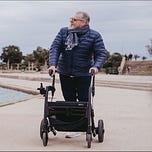

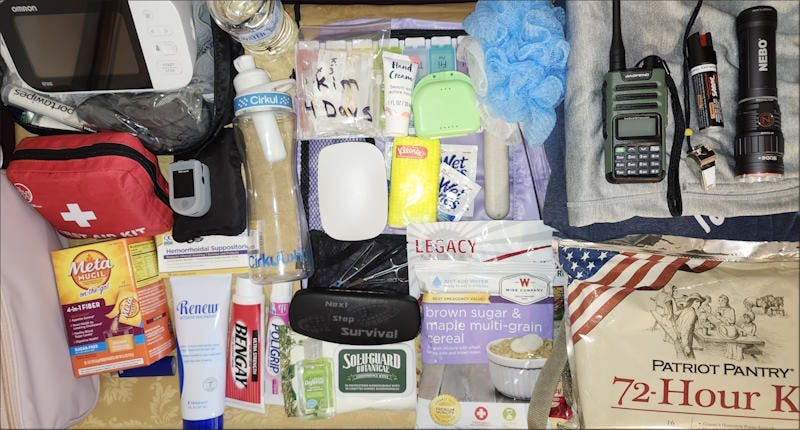
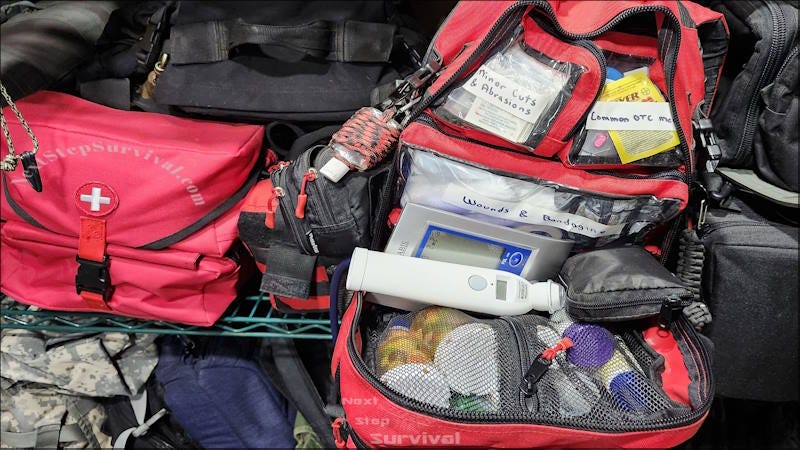
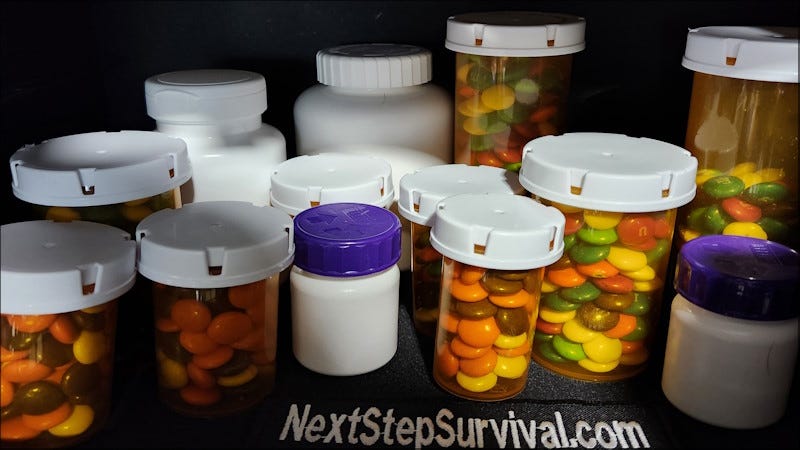

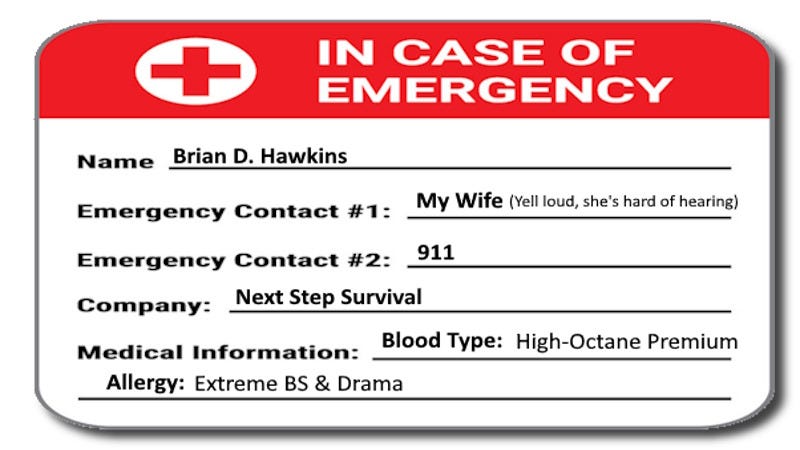
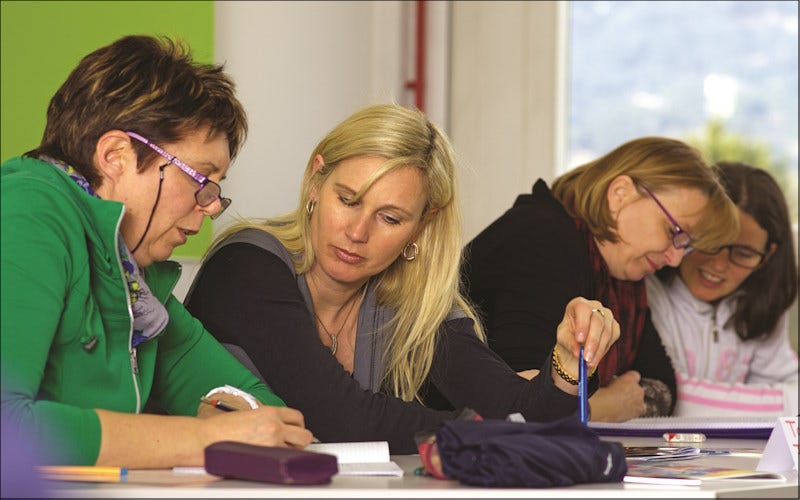



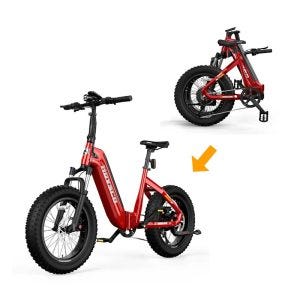











Share this post